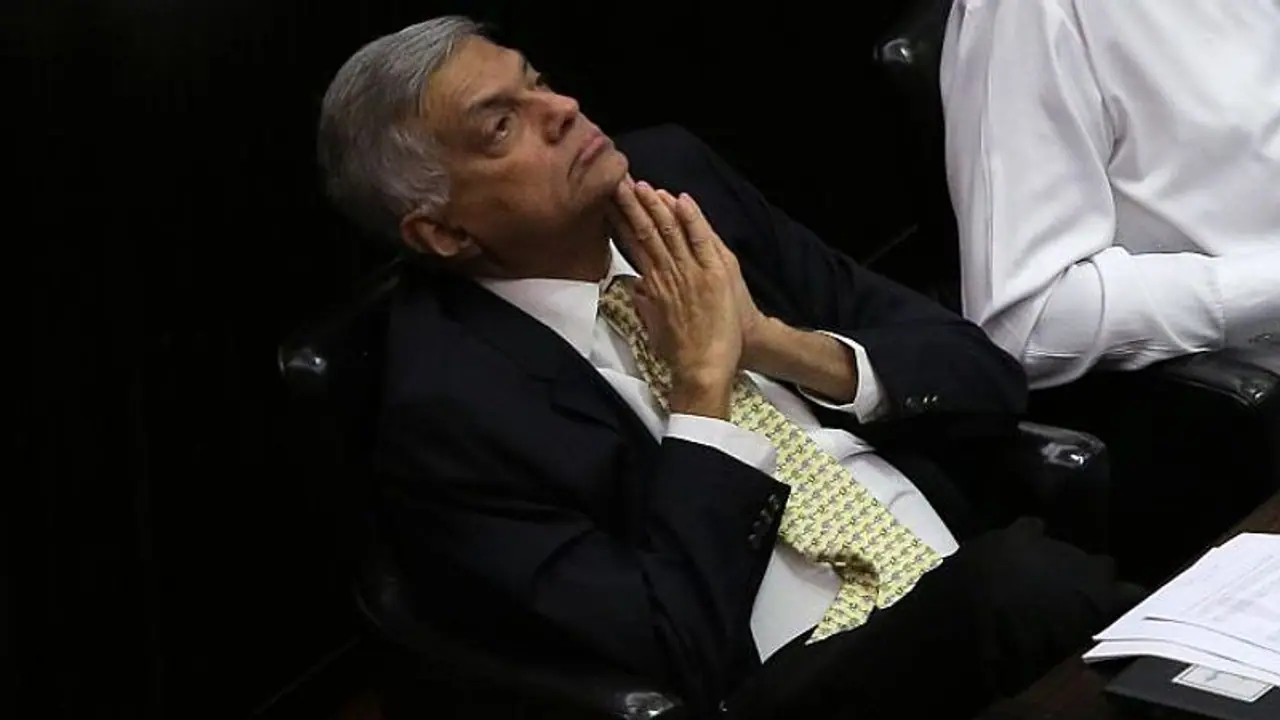Asianet Newsable reached out to a number of analysts who have been watching the developments unfolding in Sri Lanka to understand why the island nation is still not out of the woods as far as the political crisis is concerned.
Moments after six-time prime minister Ranil Wickremesinghe emerged victorious in the presidential election held on Wednesday in Sri Lanka, the protestors thronged the streets of Colombo, demanding his resignation and questioning his legitimacy to remain in office.

Also Read: Sri Lanka crisis: Decoding Sajith Premadasa's gameplan
Wickremesinghe, however, made it clear that he would not bow to violence. Following his elevation to the post of President, Wickremesinghe warned protesters that he would deal firmly with those who try to topple the government and occupy the prime minister's office and the president's office. He further said that a minority of protesters could not trample on democracy, take the law into their hands and suppress the aspirations of those wanting a change in the political system.
Asianet Newsable reached out to some analysts who have been closely watching the developments unfolding in Sri Lanka to understand why the island nation is still not out of the woods as far as the political crisis is concerned.
According to Dr Sanjay Bhardwaj, Professor of South Asian Studies at Jawaharlal Nehru University (JNU), "There is a legitimacy issue in Wickremsinghe becoming the president. When all this turmoil started months ago, the people had sought Gotabaya Rajapaksa and prime minister Mahinda Rajapaksa's resignation. Mahinda had to resign. Thereafter, Wickremesinghe was picked as the new prime minister. But he did not do much to take Sri Lanka out of its worst-ever economic crisis. So the people started asking for his resignation too."
"Even the opposition leader, Sajith Premadasa, does not have people's support. Normalcy can be brought to the island nation if a sustainable government is formed on consensus with the inclusion of leaders from all national parties. The government, formed on consensus, must have equal representation from all national parties. It should not be based on the strength of the political parties," Prof Bhardwaj said.
Also Read: 'Sri Lanka's problems are too big for India to handle by itself... China is not foolish'
Prof Bhardwaj further said that the Sri Lankans would only agree when there were no Rajapaksa loyalists in the government.
"It is true that Rajapaksa's party -- SLPP -- is in power. So his man can only become the next president. The crisis which is going on in Sri Lanka needs to be resolved through political means and not through constitutional procedures," the JNU professor added.
He further said, "For the ongoing crisis, constitutional procedures can't be a solution. That's because the Rajapaksas were elected through this process only. He was forced to resign because people needed a political solution. Constitution is nowhere in place."
On the future of Wickremsinghe, the JNU professor said, "He is elected constitutionally, but the people have not accepted him. It is a people's cue because they have occupied the presidential palace, and the elected one has to work as per them, else has to resign and go."
Dr Smruti S Pattnaik, a South Asian expert and Research Fellow at the MP-IDSA, said, "Legitimacy is a matter of perception, but the legality is different. The Constitution has a particular procedure. Wickremesinghe has been elected as per that procedure."
Also Read: 'Politicians only want power... Big Brother India must help
On protest erupting just after Ranil was elected as the next president, Dr Pattnaik said, "The protest was expected. If it would not have taken place, I would have been surprised. Protestors do not want Ranil to be the president. They do not want Rajapaksas to be the president. Then who should be? Can the protestors make a choice? There is a procedure. You cannot say that there should be no constitutional procedures, and it should be based on people's will. People's will can only be ascertained through either the direct election or through people's representation. In this context, Wickremesinghe was elected through a constitutional procedure."
Dr Dhananjay Tripathi, Associate Professor at South Asian University in Delhi, said: "Two things are very important to bring back Sri Lanka on the right trajectory. 1. Revival of tourism is a must. The leadership can seek assistance from the international community so that things can improve. 2. Coordination with India, West, International Monetary Fund and World Bank for aid. These two things are immediately needed to do. Ranil must have to proactively get the things done, then only some kind of normalcy could be brought in the country."
Dr Tripathi is of the view that Sri Lanka does not have solutions to the current scenario.
"International community should make the essential commodities, fuel, medicines and others available to the Sri Lankans so that the pressure could be less on the government. In the meantime, the government should make efforts to bring normalcy," he said.
"Currently, Sri Lanka does not have solutions to resolve its crisis. The international community has to interfere in their affairs to bail out the island nation," Dr Tripathi added.
Image: File photo of Ranil Wickremesinghe at the parliament complex, Colombo. Photograph: Tharaka Basnayaka/NurPhoto via Getty Images
